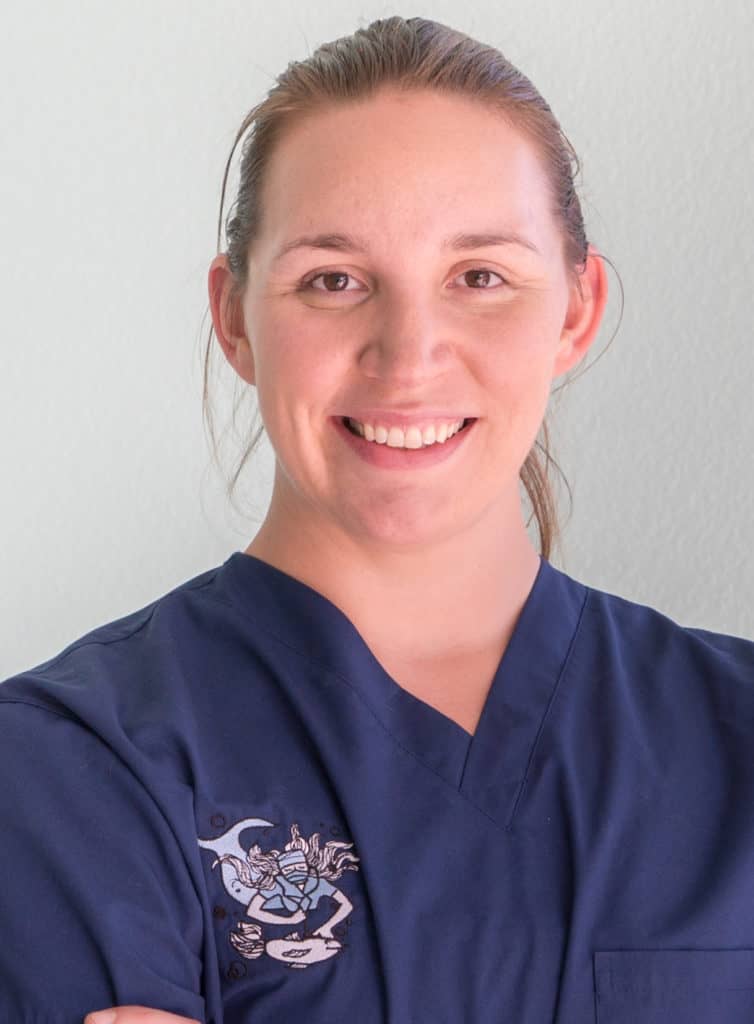You may have noticed a few extra letters after our chief veterinarian’s name, indicating her standing as a Certified Aquatic Veterinarian:
Jessie Sanders, DVM, CertAqV
The “DVM” stands for “Doctorate of Veterinary Medicine” and applies to all veterinarians. (Unless you went to Penn and then you have VMD after your name.) But what does the “CertAqV” stand for?
“CertAqV” is short for “Certified Aquatic Veterinarian.” This denotes a veterinarian who has completed the World Aquatic Veterinary Medical Association‘s Certified Aquatic Veterinarian recognition program. This program is open to all veterinarians. Since there is no board certification in aquatics at this time, at least in the US, unless you go for your full zoo boards, this is the best criteria we have to evaluate if a vet knows enough to work with aquatic patients. Some other countries do have aquatic specialization.
Applicants are required to obtain skills and education in 9 core subject matter areas:
- Aquatic Environment and Life Support Systems (25 credits)
- Taxonomy, Anatomy and Physiology (10 credits)
- Husbandry and Industries (25 credits)
- Pathobiology and Epidemiology of Aquatic Animal Diseases (25 credits)
- Diagnostics and Treatment of Aquatic Animal Diseases (25 credits)
- Clinical Veterinary Experience and Client Communications (25 credits)
- Public Health, Zoonotics and Seafood Safety (5 credits)
- Legislation, Regulations, and Policies (5 credits)
- Principles of Aquatic Animal Welfare (5 credits)
Since this is an international program, the total 150 credits can be obtained in a variety of ways:
- Continuing Education and Professional Development
- Example: Attending a conference lecture
- Academic Programs or Courses (University Level)
- Post-Veterinary Academic Training
- University Degrees, Internships, Residencies, Board Certification, etc
- Literature Self-Study and Online Education
- Example: Journal article or Webinar
- Clinical Experience & Case Logs
- Examples: Case reports, book chapters (written), oral presentations, etc.
Once a veterinarian decides to apply, they must obtain a mentor to sign off on their application. Mentors have completed the Certified Aquatic Veterinarian program and double check the validity of the skills and the method they were attained. Once approved, this is sent to the main WAVMA credentialing committee for final approval.
Certification is good for 5 years, then requires a 50 hour renewal. Our Dr. Sanders completed her first renewal in April of 2019. She was one of the first CertAqV approved.
Veterinary students are eligible to apply for the CertAqV program, but will not be fully approved until after the graduate.
For more information, please visit the WAVMA CertAqV page.
Other Articles You Might Like
- Day 2,190 – Reflecting Upon 6 Years
- The Secret to Getting More Fish Clients
- Behind Our Children’s Series

